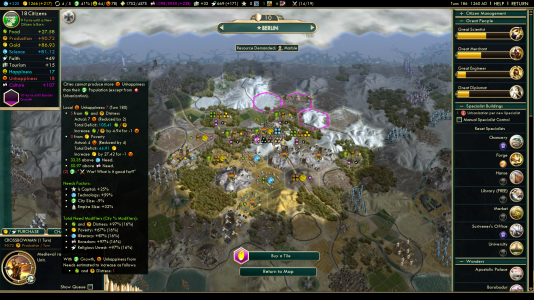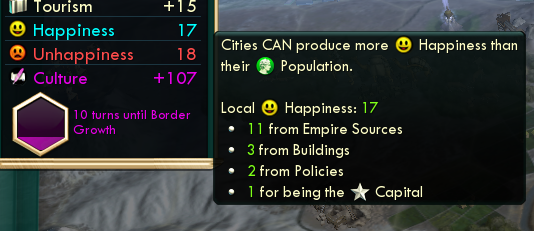It doesn't need to scale linearly with era. Every era could have a separate constant value in a table or sth, so it can be easily adjusted.
This is not "easily adjusted", it is a
nightmare to adjust. Every time you adjust a science/culture/etc cost curve, you have to go through an additional iterative process to find the right set of values for this scaling. This won't happen; see the lack of interest in using the previous tools to figure out what the correct numbers are in, like, any function that scales in the game. Reference: the previous happiness calculation. There were modifiers that stated how many yields were were worth one unhappiness. Players could have set their own defines to iterate through in order to find the perfect balance of too easy or too hard. No one did. Poverty was a problem for a long time because its yield variable wasn't correctly tuned to the amount of gold that appeared in the game. It was adjusted by Recursive a couple patches ago and unhappiness problems became a non-factor, requiring another retuning to *all* of the modifiers.
Great Engineer Hurry Production scaling has been off for years, and no one has tried playing with its 3 variables "make the perfect curve"; if they
had tried, they wouldn't be able to find something satisfactory across all eras because its curve isnt even close to lining up with production costs. I reduced it to 2, with the baseline curve following the player's relationship to costs exactly. You have just suggested increasing the number of variables by
8.
Scaling with player yields means that these functions automatically scale with how the player functions related to costs at any given point in time.
Both the happiness and great person yield changes were done with the intent of reducing fiddliness, and instead tie baseline scaling to the player's relationship between yields and costs over the course of the game. This allows balance to not worry about the baseline. We've eliminated the arbitrary curve coefficients, reducing the number of variables necessary to tune.


